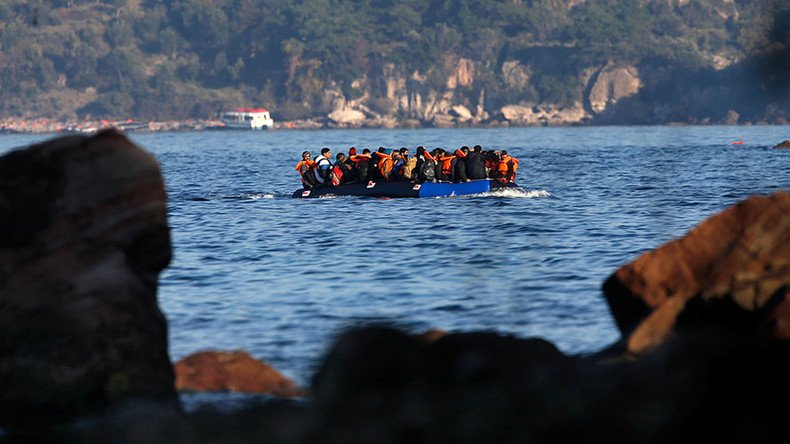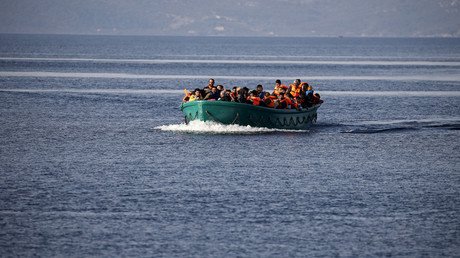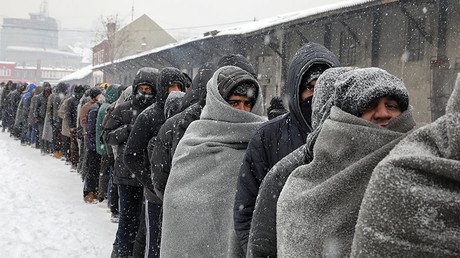New EU deal to curb migration via Mediterranean is likely to make matters worse – MSF to RT

EU leaders have adopted a declaration which is set to stem illegal immigration into the bloc from Libya and neighboring countries via the Mediterranean. An MSF representative has told RT the deal is likely to exacerbate the problem.
The paper in question was agreed during an informal EU heads of state meeting in Malta’s capital Valetta.
The declaration published on the website of the EU Council sets the reduction of migrant influxes and saving the lives of refugees attempting the risky naval journey to Europe as its key goal. One of the main tools to achieve this is through Libya, the paper states, adding that efforts to stabilize the crisis-plagued country are now “more important than ever.”
In particular, the EU wants to ensure “adequate reception capacities and conditions in Libya for migrants” with the help of the UN human rights agency (UNHCR) and the International Organization for Migration (IOM).
The plan also envisions disrupting the “business model of smugglers,” who are increasingly exploiting the plight of refugees trying to cross into Europe via the naval route. Equipping Libya’s national coast guard with the necessary tools and hardware is also a key consideration. The EU says its ready to give North African nations an additional €200 million in financial aid to tackle “migration-related projects concerning Libya.”
However, the humanitarian organization, Medecins sand Frontiers (MSF) or Doctors Without Borders, is casting doubts on the points agreed in Valetta. Speaking to RT, Arjan Hehenkamp, who is MSF’s General Director for the operation center in Amsterdam, said the measures are likely to make matters even worse.
“What will happen in practice, what seems to me is that by claiming to save lives on the Mediterranean and pushing people back into hellish detention centers which are in Libya today, so they are not solving the problem, they are most likely exacerbating one," Hehenkamp said. Crisis-hit Libya is currently a major point of concentration for refugees fleeing violence in Africa and the Middle East seeking to get into Europe.
During a meeting of EU internal ministers in January, the German head of the Interior, Thomas de Maiziere advocated for Europe funded camps in Libya as a “safe place” for refugees. He proposed that the camps function under the auspice of UNHCR and IOM and let into Europe only those who really need protection.
However, the declaration published on Friday does not include any details on that idea.
‘Refugees in Libya living in terrible conditions’
Hehenkamp, who recently returned from Libya, said refugees there are living in "terrible conditions" and emphasized that the country is still in turmoil with various armed factions vying for power. “Even the capital town Tripoli is subdivided by militias,” the MSF official noted.
Last year, the EU managed to significantly reduce the 2015 influx of refugees by striking a deal with Turkey who agreed to block the migrants from entering into Europe. While the EU officials praised the deal, Hehenkamp claimed he would “disagree that the Turkey deal was a success.”
"[The agreement] has resulted in countries that surround Syria have also closed their borders, and now what happens is that Syrians [are] abandoned by everyone in the world."
"And the same will probably happen if this deal [on Libya] goes through with the people who are being pushed back into Libya, who are locked into violence and who are locked into violent detention centers [there]," the MSF representative warned.
Last year became the deadliest in terms of casualties among refugees who opted for the risky naval journey through the Mediterranean, with over 5,000 people killed or missing.
While admitting that finding a solution to the problem is by far not an easy task, Hehenkamp emphasized there are indeed certain steps the EU can take to reduce the refugee numbers.
"One area that I think the EU will have to confront and have to accept is that at the moment the only way that people can come to Europe if they really want to, if they really need to flee for their lives, is through Libya and through Mediterranean in leaky boats.”
“And so, what EU needs to do, is to open up safe and organized and legal manners in which people could come into the European Union, rather than forcing them into detention and rather to forcing them into Mediterranean in leaky, dangerous boats,” Hehenkamp concluded.














